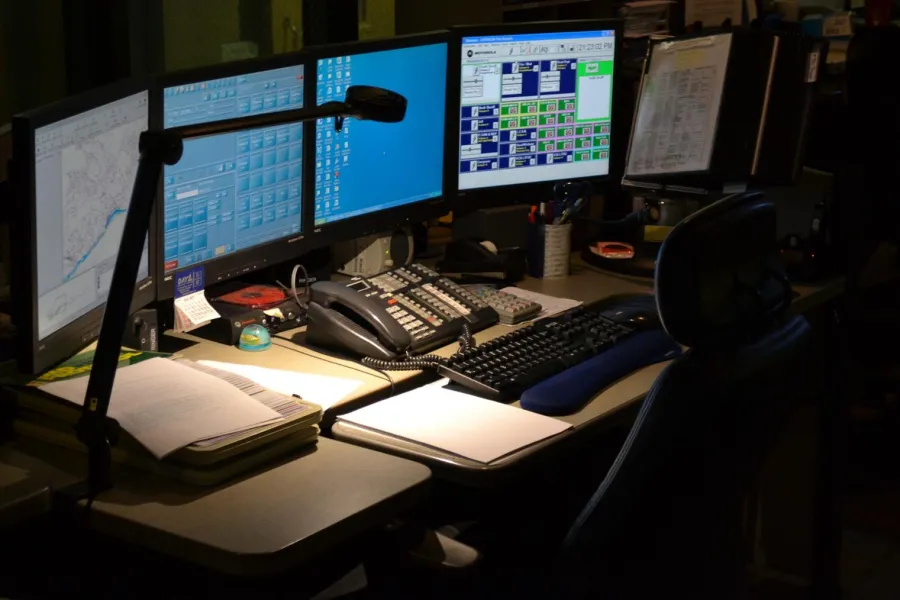A Life Changing Call Leads to a Life of Service

Editor’s Note: 911 dispatchers are vital to the emergency response system. They remain poised and professional in crises and coordinate a range of emergency services. In short, they are vital links in the chain of survival. (To learn more, go here). Here’s the story of one such professional.
Darin Glodo is an 18-year veteran public safety communicator – a 911 operator in common parlance – for the city of Tulsa, Oklahoma. He charts his passion for his job to a single, life-changing call he fielded in 2002, at the dawn of his career.
Glodo had only been on the job for about a year-and-a-half – still a relative newcomer in the emergency response field and uncertain of whether he was passionate enough to make it his career. That was before he took a call one day from a woman who, terrified, explained that her sister had been kidnapped. She was calling him while speaking to her abducted sister.
Glodo gathered as much information as possible while trying to calm the caller down. She explained that her sister had been kidnapped in Tulsa and that her captor had been keeping her in the trunk of a car as he fled the city. He had let her out of the car briefly, allowing her to make that lone call, though she had no idea where she was.
Acting quickly because time was of the essence, Glodo knew he had to use the caller as a go-between to pinpoint where they were. Making matters even more challenging, Glodo had to ply the caller with questions – to be relayed to the kidnapped sister during the brief release she’d been given – in a way that wouldn’t tip off the kidnapper that the police were now involved.
“On these kinds of calls, we’re trained to ask questions in a specific manner so as not to alert someone else that we’re looking for very specific details,” recalls Glodo. “On this call, though, I had to use the caller as my interviewer to get details.”
If Glodo had been unsure of whether he was meant to be a 911 dispatcher, his doubts were put to rest that day. Hearing the terror in his caller’s voice, he mustered every ounce of poise and professionalism to keep his caller calm and alert.
Luckily, the kidnapper stepped away just long enough for the woman to reveal to her sister one essential detail: the name of an out-of-state hotel, hours away from where she’d been abducted. Though the call with the victim soon ended, her sister was able to reveal to the caller other crucial details she’d somehow gleaned.
These sparse puzzle pieces proved enough for Glodo to guide law enforcement, and the kidnapper was captured and arrested at that out-of-state hotel, his victim freed. That call, which lasted for hours, changed Glodo’s view of his job forever.
Now, 18 years later, Glodo, a member of AFSCME Local 1180, is proud to still work for the city of Tulsa as a dispatcher for the fire and police departments, and he has added another position as a reserve police officer for a local municipality near Tulsa to his list of responsibilities.
“I used to think the only way to make a difference was being a police officer,” Glodo recalls. “Honestly, that was why I took this job as a communicator [for the police department]. But then I realized my work as a 911 operator and my abilities are just as valuable.”
Often overlooked is the stress and trauma people like Glodo face. That’s why each day for Glodo and his team begins and ends with an indispensable debrief.
“We talk about our calls and how they affected us. We talk about the moments that went really well. And we talk about the hard parts, the parts we could have done better, and we acknowledge the toll it took,” says Glodo. “Then we leave it at work, because we have to. We go home to our families and the people we love knowing we did the very best we could. I couldn’t be prouder of the work I do and the people I work with.”
